

Top Ethereum Wallets
- Metamask – Best for Interacting with Web3 Applications
- Ledger Nano – Best for Storing ETH Tokens in Cold Storage Securely
- MyEtherWallet – Best for Connecting a Software Wallet to Cold Wallets
- Trezor Wallet – Best for Getting a Hardware Wallet with Increased Security Features
- Trust Wallet – Best for Trading and Storing ETH on a Secure Mobile App
- Coinbase Wallet – Best Browser Wallet for Compatibility
- Guarda Wallet – Best for Storing ETH on Mobile, Desktop, and Browser
- Exodus Wallet – Best for Accessing Web3 Features
- Onekey Wallet – Best Open-source Crypto Wallet
Best Ethereum Wallets Reviewed
1. Metamask – Best for Interacting with Web3 Applications
MetaMask Wallet is the most popular Ethereum wallet, offering quick and secure access to ETH tokens and the ability to manage Ether and ERC-20 compatible assets. The most crucial feature Metamask comes with for altcoin users is the integration of a browser extension, which allows users to interact with decentralized applications (dApps) directly from their web browsers.
- It helps simplify accessing and interacting with the Web3 environment while connecting with EVM-compatible networks.
Metamask has built-in functionalities to buy, store, send, and swap tokens directly on the account. It also allows transferring NFTs and ERC-721 tokens. There’s also a mobile version with limited capabilities, but on the browser version, Metamask supports customer EVM tokens & network additions.
- MetaMask provides a reasonable level of security by encrypting private keys and storing them locally on the user’s device.
While not as secure as hardware wallets, MetaMask ensures that users have full control over their private keys, making it a non-custodial wallet. An easy-to-navigate interface and simple UI have transformed MetaMask into a platform that earns a strong reputation for its reliable performance, especially for a hot wallet. Finally, the wallet is free and can be downloaded from the Metamask website.
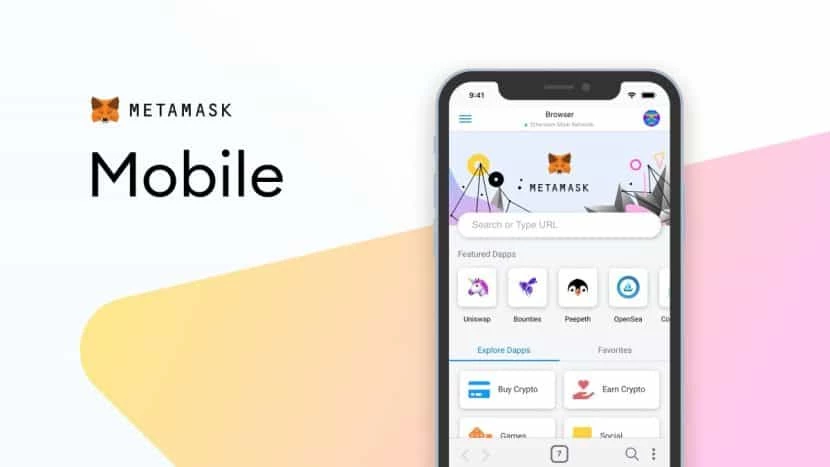
-
Pros
-
 EVM compatible
EVM compatible -
 Supports NFTs and tokens
Supports NFTs and tokens -
 Integrates with Web3 apps
Integrates with Web3 apps -
 Easy to use
Easy to use -
 DeFi features
DeFi features
-
Cons
-
 Hot wallet that poses risks
Hot wallet that poses risks -
 Only supports ERC-20 tokens
Only supports ERC-20 tokens
2. Ledger Nano – Best for Storing ETH Tokens in Cold Storage Securely
Ledger Nano is a secure hardware wallet designed to store Ethereum and a wide range of other tokens. The device sets itself apart from mobile or software wallets as it holds tokens offline and comes in a physical form, allowing it to have better security features. The BOLOS operating system ensures high protection for users’ private keys.
- The Ledger stores private keys offline, eliminating the risk of cyberattacks and unauthorized access to Ethereum assets.
Users can store and transfer ETH tokens through a USB device, which makes it easy to store and transport anywhere. It’s also a non-custodial wallet with over 5,500 different tokens, including EVM-compatible ones like Polygon, Tron, or Fantom, to name a few.
- The device includes buttons and Bluetooth access and is compatible with Windows, Android, MacOS, and iOS while also being able to connect to software wallets like MetaMask.
By default, wallet information is shown in English, but new updates have included Spanish and French. As an Ethereum wallet, Ledger Nano is one of the best cold wallets available for storing ERC-20 tokens and has a reputation as being one of the safest devices.
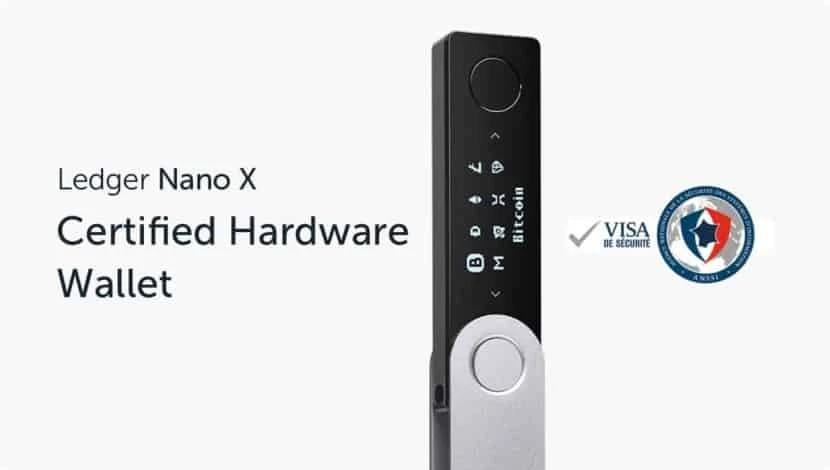
-
Pros
-
 High-security features
High-security features -
 Supports multiple tokens
Supports multiple tokens -
 Best way to store Bitcoin
Best way to store Bitcoin
-
Cons
-
 It comes at a price
It comes at a price -
 Not ideal for day-to-day Bitcoin interactions
Not ideal for day-to-day Bitcoin interactions -
 Learning curve
Learning curve
3. MyEtherWallet – Best for Connecting a Software Wallet to Cold Wallets
MyEtherWallet is an open-source platform for storing Ethereum tokens and is compatible with hardware wallet options like the Ledger or the Trezor wallets. The wallet features three ways to connect to the Ethereum network: a mobile app called the MEW wallet, a desktop version, or the Enkrypt browser extension.
- MEW is an all-ERC-20 digital wallet that allows users to store EVM-compatible tokens, ETH tokens, and NFTs that use the ERC-721 token standard.
As an open-source platform, MyEtherWallet lets developers use and modify the code to their liking and create new use cases for the blockchain. Regarding security, the software uses multi-layer encryption to secure private keys and isolated cold storage to reduce hacking risks.
- Private keys are not visible to users, and there’s only a 24-word mnemonic phrase to help users back up their accounts.
MyEtherWallet is a non-custodial wallet, meaning the owners are in full control of their funds and do not need to trust a third party with their assets. The wallet has an easy-to-use and understandable interface, coupled with multi-platform access, making it easily accessible to everyone who wants an Ethereum-only wallet.
Since launching in 2015, MyEtherWallet has had a series of hacks on the wallet, which drained customer funds. For that, networks can contact support through a dedicated email address or social media DMs. MEW is a wallet still grinding in today’s crypto market.
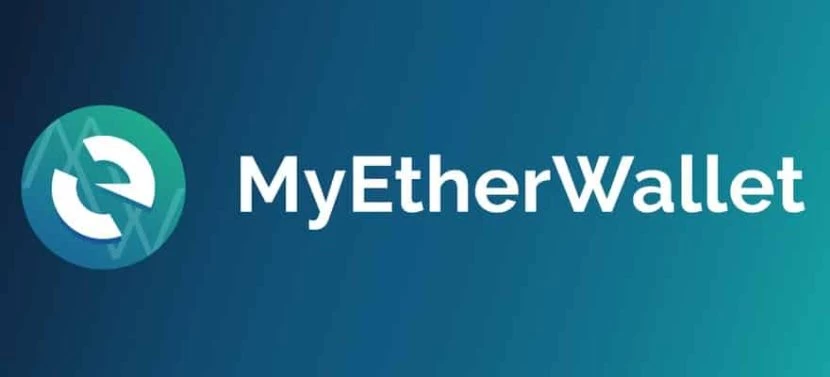
-
Pros
-
 Open source
Open source -
 Connects with hardware wallets
Connects with hardware wallets -
 Non-custodial wallet
Non-custodial wallet
-
Cons
-
 No private key features
No private key features -
 Backup only feature
Backup only feature -
 Hacked in the past
Hacked in the past
4. Trezor Wallet – Best for Getting a Hardware Wallet with Increased Security Features
Trezor Wallet is one of the best hardware wallets for storing ETH assets and provides unparalleled security by storing assets offline while still interacting with third-party online dApps with ease.
With an open-source design, Trezor allows for wallet verifiability and security audits by anyone online while also
- including security elements such as ‘sign’ & ‘verify’ transactions
- Tor browser for anonymous and private communication
- up to 50 digits long PIN-protected pass
- multi-word recovery phrase
- and a Sarmir Backup function to recover passphrases from a forgotten device.
Each transaction is confirmed through the wallet’s private keys to keep assets secure while offline. Trezor is also compatible with MetaMask allowing for seamless dApp integration. Trezor is a self-custodial device, generally used for long-term storage, and includes Ethereum and other altcoins as well as Bitcoin – however the amount of supported tokens is lower than the Ledger.
- The wallet connects via a USB cable, two buttons, and a screen to help connect the wallet and is compatible with desktops, browsers, and mobile (Android/iOS).
The wallet interface allows buying, sending, storing, and trading ETH tokens while offering complete control over assets. Like other hardware wallets, storing ETH on Trezor is not accessible, as users must purchase the device for $69. However, the amount is a small price to pay for safeguarding one’s assets.
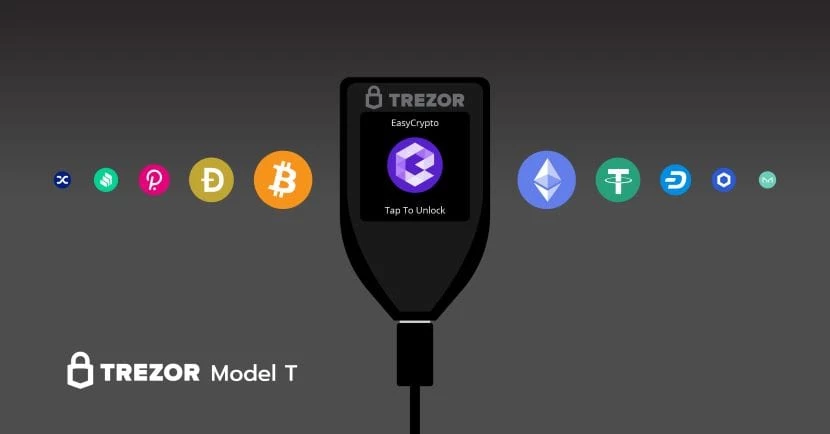
-
Pros
-
 Ideal for cold storage
Ideal for cold storage -
 Features private keys
Features private keys -
 Verifiable open-source code
Verifiable open-source code
-
Cons
-
 Lacks a large selection of tokens
Lacks a large selection of tokens -
 Needs to link to third-party apps
Needs to link to third-party apps
5. Trust Wallet – Best for Trading and Storing ETH on a Secure Mobile App
Trust Wallet is a software crypto wallet designed to ensure the safe storage of cryptocurrencies on mobile phones. The wallet is only available on a mobile device, so it’s an ideal platform to store Ethereum and transfer it without being tied to a location.
It’s readily available on Google, Android, iOS, and the Google Chrome Store as a Chrome extension – which is a new addition. The wallet has built-in staking for a number of tokens, including Ethereum, but it was primarily designed to support the Binance Smart Chain.
- Still, it allows users to send, receive, store, and buy digital assets and interact with a DEX to swap between tokens.
The security features include 12-word recovery phrases to access ETH assets and offer 2FA features for extra security. It’s a non-custodial wallet with hot storage for storing tokens while having the option to enable multi-signature from the app.
- The wallet’s interface is easy to understand and manage, with the option of opting for 11 languages.
With over 60 million users using the wallet, the wallet is considered secure as it avoids third-party access to users’ crypto assets.
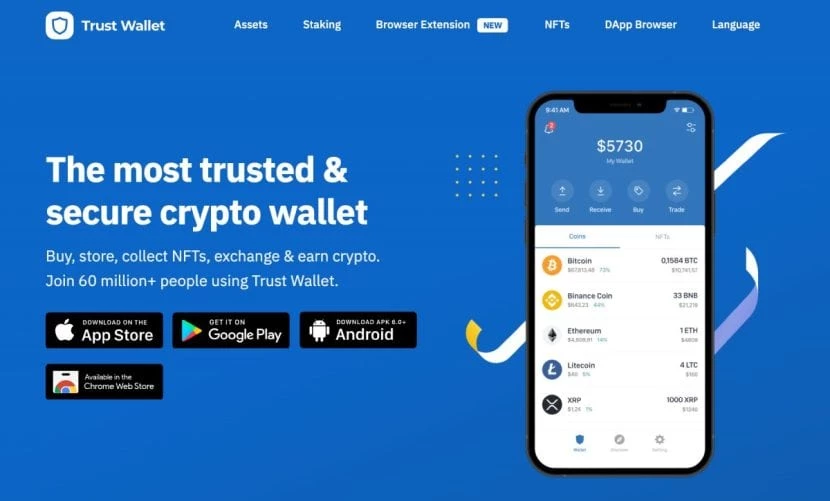
-
Pros
-
 Easily integrates with every dApp
Easily integrates with every dApp -
 It makes it easy to send BTC on the go
It makes it easy to send BTC on the go -
 Allows third-party Bitcoin purchase
Allows third-party Bitcoin purchase
-
Cons
-
 High-security risk
High-security risk -
 Mobile-only wallet
Mobile-only wallet
6. Coinbase Wallet – Best Browser Wallet for Compatibility
Coinbase Wallet, a highly acclaimed and user-friendly software wallet, is considered one of the best crypto wallets for beginners. Launched as an alternative to the crypto exchange, it operates separately from the Coinbase exchange, making it easier and faster to transfer BTC and interact with dApps compared to other mobile wallets.
- Accessible in over 100 countries worldwide, Coinbase Wallet supports a wide range of cryptocurrencies and digital assets, including Bitcoin transactions and storage.
Users can install the wallet on their internet browser (Google Chrome) or download it on iOS or Android devices. The wallet offers a simplified user interface coupled with two-factor authentication, biometric authentications, secure enclave technology, and private key storage on the user’s device—ensuring digital assets remain safe from unauthorized access.
- It provides non-custodial storage for Ethereum, allowing individuals, businesses, and developers to enjoy straightforward asset management.
Swapping, trading, storing crypto or NFTs, and yield farming are integrated features available to Coinbase Wallet users—the Coinbase company. Integration with Coinbase Wallet continues to grow as more Web3 applications include Coinbase as a connector providing an alternative to MetaMask or Trust Wallet.
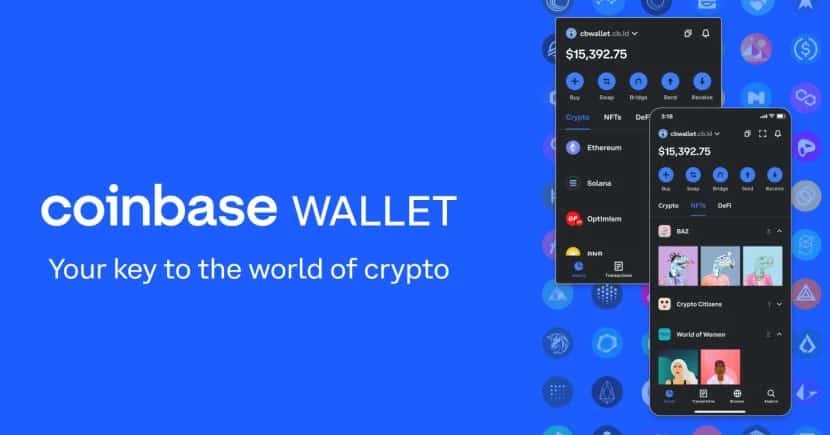
-
Pros
-
 Ideal for interacting with Web3 websites
Ideal for interacting with Web3 websites -
 Supports NFTs and other altcoins
Supports NFTs and other altcoins
-
Cons
-
 Lacks high-security features
Lacks high-security features -
 Browser based extensions
Browser based extensions
7. Guarda Wallet – Best for Storing ETH on Mobile, Desktop, and Browser
Guarda Wallet is a versatile and user-friendly multi-platform wallet designed for managing Ethereum and a wide array of other cryptocurrencies. One of its unique selling points is the availability of various wallet versions, including web, desktop, mobile, and browser extension options. It allows users to choose their preferred method for managing digital assets.
This adaptability ensures a seamless device experience, catering to diverse user preferences. Another distinctive aspect of Guarda Wallet is its built-in exchange feature, which allows users to quickly swap between supported cryptocurrencies without leaving the wallet interface.
- This functionality simplifies the trading process and enhances the overall user experience.
As a non-custodial wallet, Guarda Wallet provides a reasonable level of security by encrypting private keys and storing them locally on the user’s device. While more secure than hardware wallets, Guarda Wallet ensures that users have full control over their private keys and ownership of their digital assets.
- The wallet supports various cryptocurrencies, including Ethereum, ERC-20 tokens, and numerous other altcoins, catering to diverse investment preferences.
Guarda Wallet has gained a strong reputation within the crypto community for its extensive features, platform support, and ease of use. Its intuitive interface makes it an ideal choice for beginners and experienced users. However, as with any software wallet, users must follow best practices for security, such as enabling two-factor authentication, regularly backing up their seed phrases, and keeping their devices secure to ensure the safe management of their digital assets.
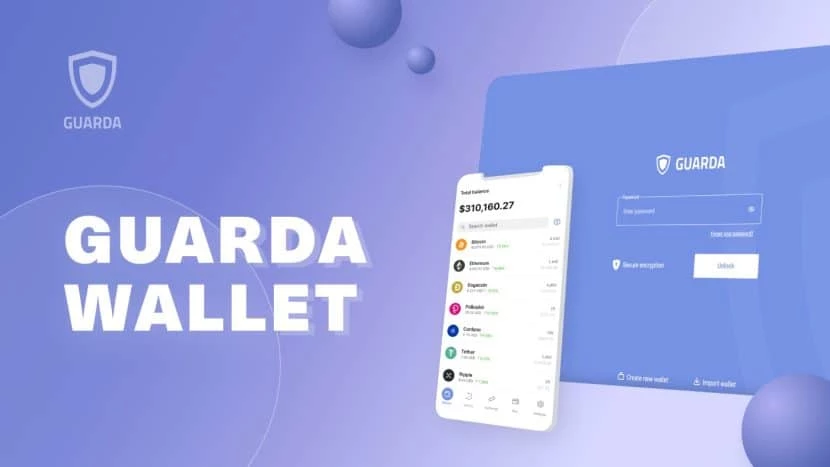
-
Pros
-
 Supports multiple types of tokens
Supports multiple types of tokens -
 Responsive customer service
Responsive customer service
-
Cons
-
 Closed code
Closed code -
 Few NFT features
Few NFT features
8. Exodus Wallet – Best for Accessing Web3 Features
Exodus Wallet is a feature-rich and user-friendly multi-platform wallet designed to manage Ethereum and other ERC-20 tokens and multiple other chains. One of its unique selling points is the visually appealing and intuitive interface, which makes it easy for users to manage their digital assets.
- Exodus’s built-in exchange functionality lets users quickly swap between supported cryptocurrencies directly within the wallet interface to enhance the user experience.
As a software wallet, Exodus Wallet offers a reasonable level of security by encrypting private keys and storing them locally on the user’s device. As a non-custodial wallet, it ensures users have full control over their private keys while storing data locally on the users’ devices.
- Exodus also provides a 12-word recovery phrase and active user support via email, an FAQ section, or social media channels.
The platform has gained a strong reputation within the crypto community for its visually appealing interface, extensive features, and integration with Trezor. Even with a high-reputation wallet, enabling 2FA to keep wallet security at the highest levels is essential.
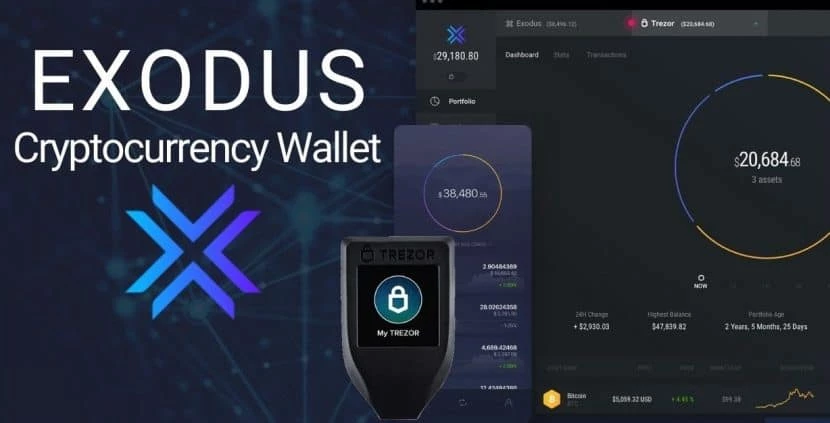
-
Pros
-
 Integrates with multiple devices
Integrates with multiple devices -
 Can easily transfer BTCs
Can easily transfer BTCs -
 Self-custodian
Self-custodian
-
Cons
-
 Hot wallet
Hot wallet -
 No multi-signature
No multi-signature
9. Onekey Wallet – Best Open-source Crypto Wallet
Onekey Wallet is a versatile and user-friendly hardware wallet designed for managing Ethereum and a wide range of other cryptocurrencies. One of its unique selling points is the integration of both hardware and software components, which provides users with a seamless experience when managing their digital assets.
- This combination of hardware and software ensures high security while maintaining ease of use. Another distinctive aspect of Onekey Wallet is its support for multiple blockchains, making it an attractive option for users with diverse investment portfolios, as it allows them to manage various assets in one convenient location.
As a hardware wallet, Onekey Wallet provides a high level of security by storing users’ private keys offline, effectively eliminating the risk of cyberattacks and unauthorized access associated with online storage solutions. The wallet supports various cryptocurrencies, including Ethereum, ERC-20 tokens, and numerous other altcoins, catering to diverse investment preferences.
- Onekey Wallet is a non-custodial wallet, ensuring that users have complete control over their private keys and ownership of their digital assets.
While it may still need to gain the same widespread recognition as some of the more established hardware wallets, Onekey Wallet has gained a positive reputation within the crypto community for its robust security features and user-friendly interface.
The wallet’s design makes it relatively easy to navigate and use, although the initial setup and integration with software wallets may require some technical know-how.
As with any hardware wallet, users should remember to follow best practices for security, such as regularly backing up their seed phrases and keeping their devices secure to ensure the safe management of their digital assets.
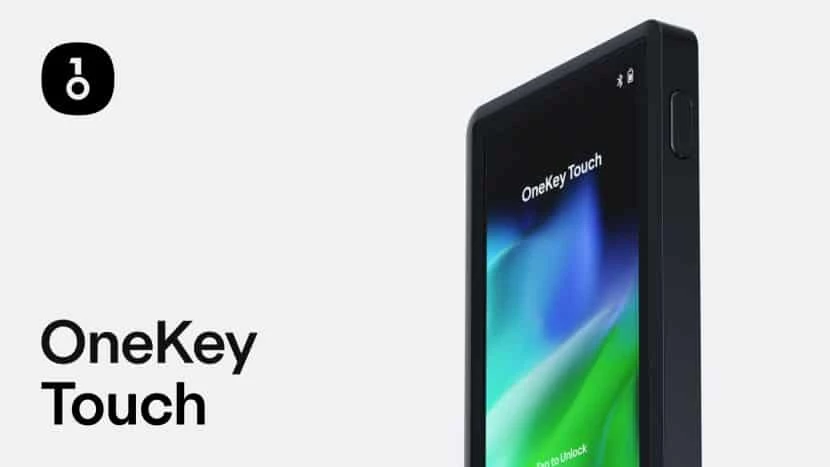
-
Pros
-
 Open-source wallet
Open-source wallet -
 Multi-feature wallet
Multi-feature wallet
-
Cons
-
 Weak support
Weak support -
 Higher price
Higher price
What is an Ethereum Wallet?
An Ethereum wallet is a digital tool that allows users to manage, store, and interact with their Ethereum-based assets, such as Ether (ETH), ERC-20 tokens, and non-fungible tokens (NFTs). These wallets also aim to safely store tokens and users’ private keys, which are essential to completing transactions and retrieving Ethereum from the accounts.
These wallets are dual-purpose: they store tokens and make them accessible only to the token owner.
However, Ethereum wallets have developed to increase their utility in the decentralized space as they serve as a tool to connect and interact with the ETH network on decentralized gaming, collecting and other forms of digital interactions through NFTs. ERC-20 and ERC-721 tokens are compatible with the device, allowing wallet users to retain ownership of non-fungible and fungible assets.
Wallets differentiate themselves through the way they store tokens, their level of security, and the level of encryption they provide. Most digital wallets are hot wallets that store ETH tokens online, while cold wallets store assets offline but could be more intuitive and easy to use. In addition to supporting Ethereum-based assets, some Ethereum wallets also support other EVM (Ethereum Virtual Machine) compatible chains, allowing users to manage assets across multiple blockchains within a single wallet interface.
The utility of Ethereum wallets goes beyond just storing assets and has developed into network bridges that connect users to the decentralized Web3 environment.
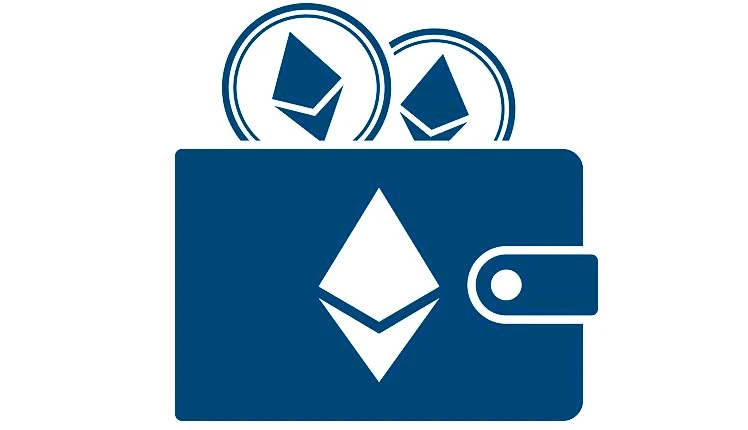
How to Choose the Right Wallet?
If you’re new, you’re always thinking about how to get the Ethereum wallet, and we’re here to nudge you in the right direction and show you what to look for when choosing a wallet.
1. Security features
When choosing the right wallet, security features should be a top priority. Look for wallets with robust encryption methods to protect your private keys from unauthorized access and potential cyber threats. Hardware wallets are considered the most secure option as they store private keys offline, effectively reducing the risk of cyberattacks.
For software wallets, consider those that provide two-factor authentication (2FA), are non-custodial, include multi-layer encryption, and always check if the wallet has ever had security breaches.
2. Ease of Use
A user-friendly interface is crucial for both beginners and experienced users. The ideal wallet should have a simple layout, be easy to navigate for experienced and crypt noobs and show the main buttons on the main page. Instructions aren’t necessary as the layout and interface would be self-explanatory.
3. Supported Cryptocurrencies
Make sure that it is not a single-token wallet – meaning that it doesn’t only support Ethereum or Bitcoin. This heavily limits your ability to interact with decentralized applications and trade or transfer tokens effectively.
Choose a wallet that supports both ERC-20 and ERC-721 non-fungible tokens, and check out the wallet description to see which blockchains are supported and where you can add tokens by yourself.
Most wallets are multi-chain, but make sure the wallet supports all the tokens you want to interact with.
4. Supported Operating Systems
Consider which operating systems the wallet supports, which will determine its compatibility with your devices.
Some wallets are web-based applications, while others offer desktop or mobile apps compatible with various operating systems such as Windows, macOS, Android, or iOS.
5. Backup and Restore Feature
A reliable backup and restore feature is essential for safeguarding your digital assets. Look for wallets that allow you to create a seed phrase or backup file, which can be used to recover your funds in case your device is lost, damaged, or compromised.
Ensure the wallet provides clear instructions on how to back up and restore your assets when needed securely.
6. Price
Wallets come at varying price points, with cold wallets like Trezor being more expensive than software wallets. Software wallets are free to use. The price you pay for a wallet depends on the level of security you want to have since hardware wallets provide enhanced security, they may only be suitable for some people’s budgets.
So always consider your budget and security needs when selecting the right wallet.
7. Portability
Portability is an important factor, especially for users who want to access their funds on the go. Mobile wallets and browser extensions provide easy access to your assets across multiple devices, while hardware wallets can be physically carried.
However, ensure that the wallet you choose maintains a balance between portability and security to protect your digital assets effectively.
How to Get a Wallet?
The Benefits & Drawbacks Of an Ethereum Wallet
Ethereum wallets are crucial in managing and securing digital assets on the Ethereum blockchain. They offer several benefits but also come with certain drawbacks. Understanding these advantages and disadvantages can help you make informed decisions when choosing and using an Ethereum wallet.
Benefits
1️⃣ Secure storage of digital assets:ETH wallets allow everyone to store, transfer, and even buy or access DeFi features directly from the wallet. 2️⃣ Full control over your assets:Since most crypto wallets are non-custodial, users can completely trust the platform as they have complete control over their private keys while obtaining ownership over their digital assets. 3️⃣ Access to decentralized applications and services:Ethereum mobile or software wallets (some only) can be integrated with Web3 dApps. 4️⃣ Multi-chain support:Some Ethereum wallets support multiple blockchains, including other Ethereum Virtual Machine (EVM) compatible chains. 5️⃣ Ease of use:Digital crypto wallets include user-friendly interfaces allowing users to interact and transfer tokens easily. |
Drawbacks
1️⃣ Security risks:Although Ethereum wallets provide security for your digital assets, they are still vulnerable to cyberattacks, phishing scams, and malware. Hot wallets are always connected to the internet and are more likely to be at risk than hardware wallets. 2️⃣ Responsibility for asset management:Not everyone can remember to store their private keys or is likely to lose them with ease. That’s why the high-security features come with an inherited risk of loss, as there are a lot of instances where large amounts of tokens are lost due to poor account management. 3️⃣ Compatibility limitations:Not every type of wallet is compatible with dApps, meaning that users need 2-3 wallets to gain full access to the Ethereum network. Additionally, some wallets have limitations in terms of accepted networks limiting interoperability. 4️⃣ Learning curve:Using a wallet is easy for users familiar with cryptocurrencies. However, novice users must fully understand gas fees, whether to store their recovery phrase, and even how to send money to other wallets. Such efforts complicate things since users need to be guided through the process. |
Ethereum Wallets Comparison
Here’s how the above-reviewed ETH wallets compare to one another:
| Wallet Name | Type of Wallet | Purchase Cost | Incorporated Exchange | Compatible Hardware |
| MetaMask | Software wallet | Free | Yes | Yes |
| Ledger Nano | Hardware wallet | $79 | No | Yes |
| MyEtherWallet | Software wallet | Free | No | Yes |
| Exodus Wallet | Software/Mobile wallet | Free | Yes | Yes |
| Trezor Wallet | Hardware wallet | $69 | No | Yes |
| Trust Wallet | Mobile wallet | Free | Yes | No |
| Coinbase Wallet | Mobile/Web3 wallet | Free | Yes | No |
| Guarda Wallet | Software wallet | Free | Yes | No |
| Exodus Wallet | Software/Mobile wallet | Free | Yes | Yes |
| OneKey Wallet | Hardware wallet | $89 | No | Yes |
Conclusion
Ethereum wallets are an essential tool for anyone who wants to store their tokens or interact with the decentralized landscape. The main advantage of a crypto wallet is that it helps store digital assets, including Ethereum and other ERC-20 tokens giving you complete control over your holding as well as the security of the tokens. A lot can go wrong when storing tokens on a hot wallet, while cold wallets have less risk.
Still, you need to know what you will use the wallet for, as it will be inconvenient to have a Ledger Nano wallet when you want to interact with Web3 dApps.
There needs to be a perfect balance between the type of wallet and the amount each wallet has stored, and we can’t over-emphasize the importance of security. With that, you should know how to use a wallet before dumping all your coins into a single account, and you can always mix a cold wallet – for storing your major holdings and a hot wallet – for lower stakes that are compatible with most websites and apps.
Are Ethereum wallets free?
Most Ethereum wallets are free, especially the mobile/software ones, while hardware wallets like Trezor or Ledger need to be purchased since they come in a physical form.
Is Metamask a good Ethereum wallet?
Metamask is one of the most popular Ethereum wallets, allowing you to manage your Ethereum funds directly from your browser.
What is the most popular crypto wallet for Ethereum?
The most popular crypto wallet for Ethereum is undoubtedly MetaMask, as it’s compatible dApps and allows users to add additional EVM networks while also storing NFTs.
What is the safest Ethereum wallet?
When choosing a safe Ethereum wallet, the key is to look for a wallet that offers secure storage of your private key. A private key is a password that gives you access to Ethereum funds. Some of the safest Ethereum wallets include Ledger Nano S or Trezor since they are cold wallets that store assets in cold storage.
Explore Other Wallets
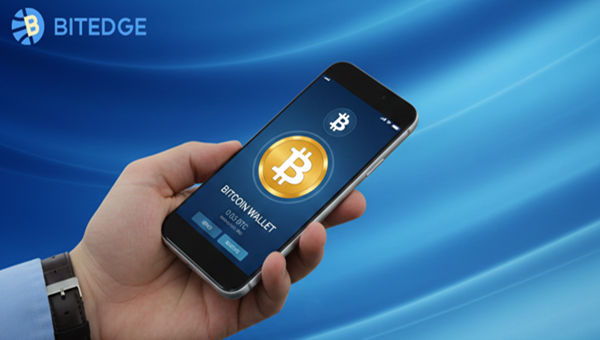
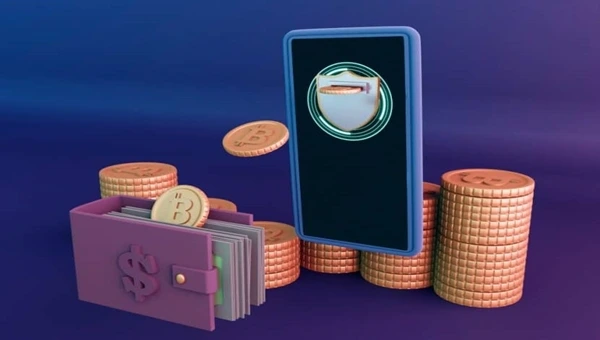
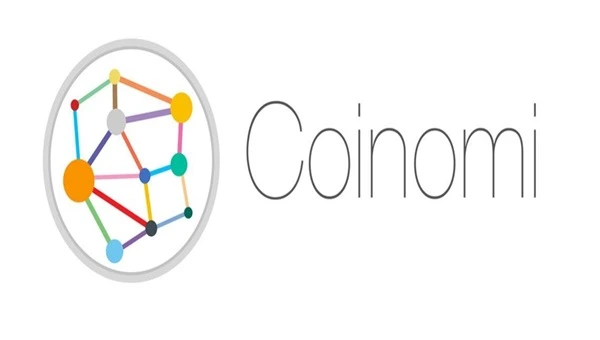
He started writing content online for various reasons, including accessing a community of music lovers. He began writing 2011 music reviews and PR releases for electronic music releases before shifting my focus to more crypto-oriented content after getting heavily involved with blockchain technology in 2013.


Facts Checked by Josip Putarek

 Fact checked by
Fact checked by 
 v.hatze@yahoo.com
v.hatze@yahoo.com 